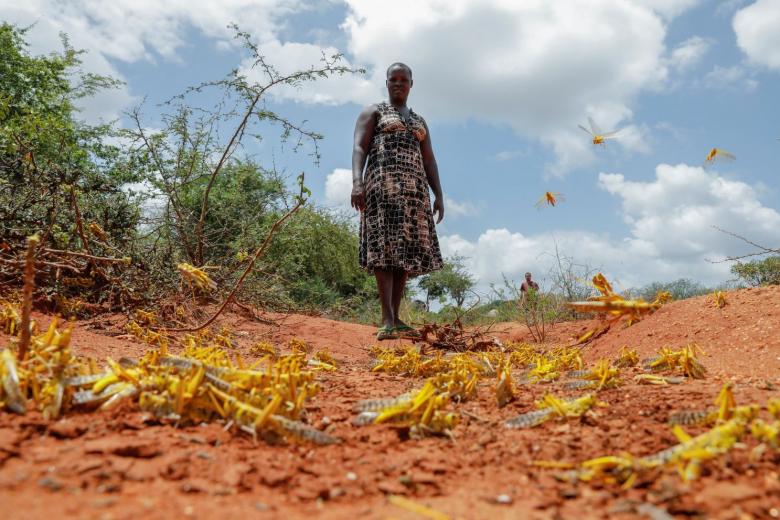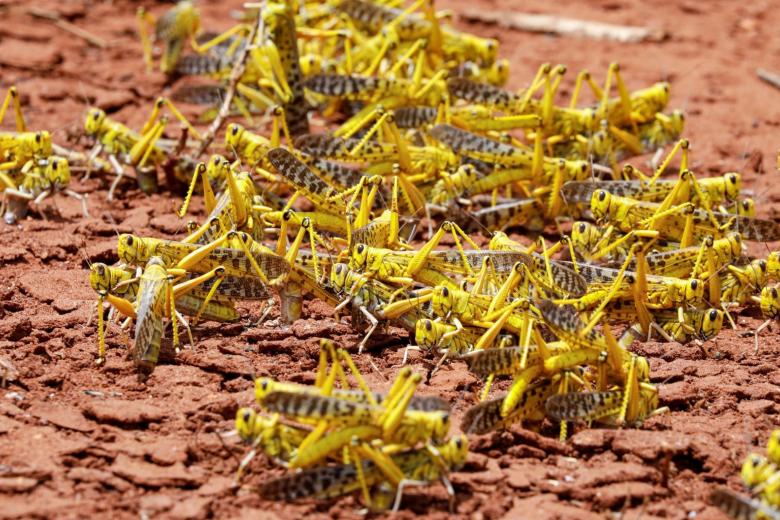KYUSO, KENYA (REUTERS) - Kenyan farmer Mwende Kimanzi said planes started spraying as soon as the swarm of desert locusts appeared but it was not enough to save her crops.
The 38-year-old mother of three says the locusts landed in her fields two weeks ago and since then they have been eating their way through her sorghum, millet and lentils while she tries to chase them away.
Usually she sells the lentils and keeps the rest for her family, but the locusts' arrival in Kyuso, about 200km east of the capital Nairobi, means they could soon go hungry.
Farmers called the authorities as soon as the locusts arrived.
Authorities used planes to spray the swarm, and while some died most ended up in Kimanzi's fields.
"The locusts appeared, and we called the authorities immediately. The aeroplanes started the spraying from that edge of the river. Some died, but the rest of the swarm moved to our farms. They destroyed everything here then. They have now moved to our homes. They are now laying eggs there," Kimanzi said.
She has only managed to harvest one bag of millet and one bag of lentils since the locust invasion.
"The rest of the crops were all destroyed," she said.
"There is nothing left. We will still face hunger."
The swarms, first sighted in December, have already destroyed tens of thousands of hectares of farmland in Kenya, Somalia and Ethiopia, threatening food supplies in the worst locust invasion in 70 years.



